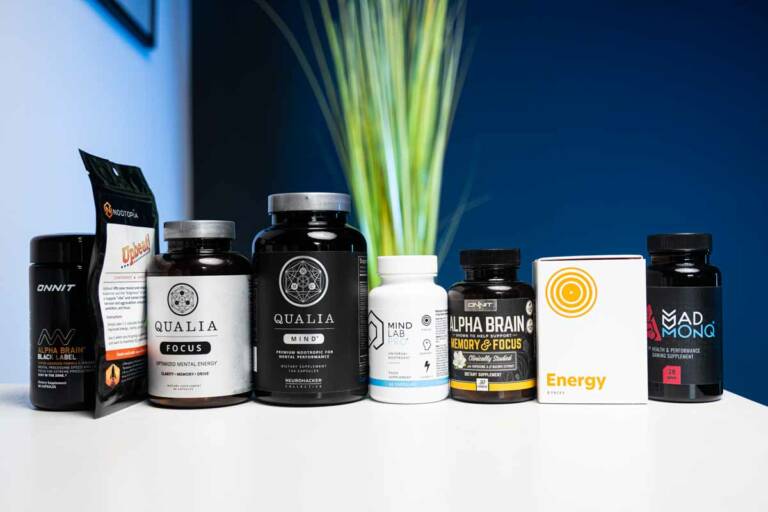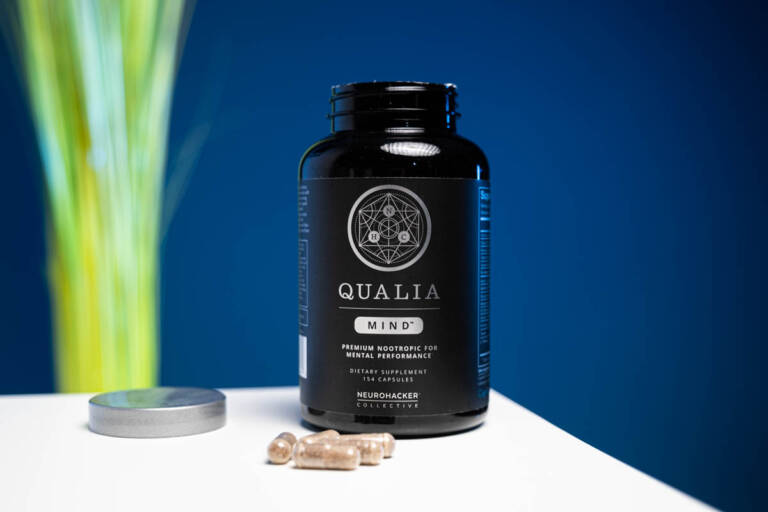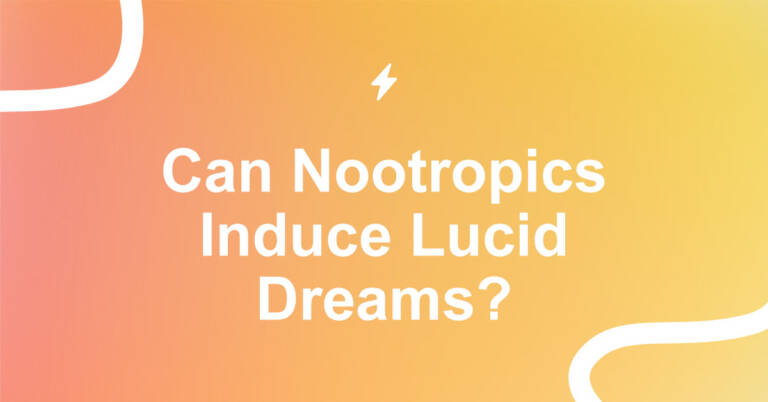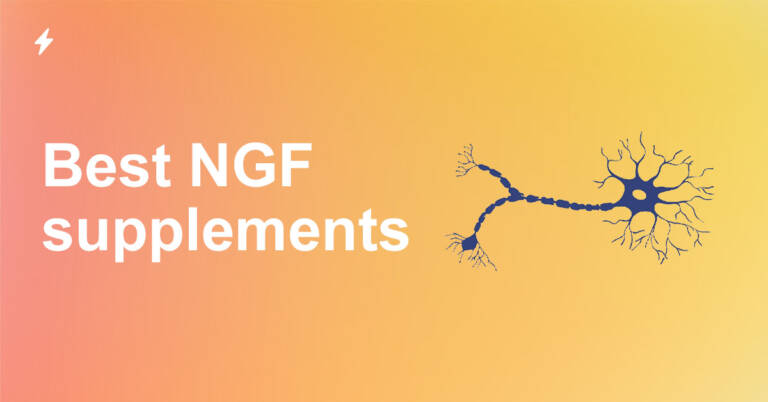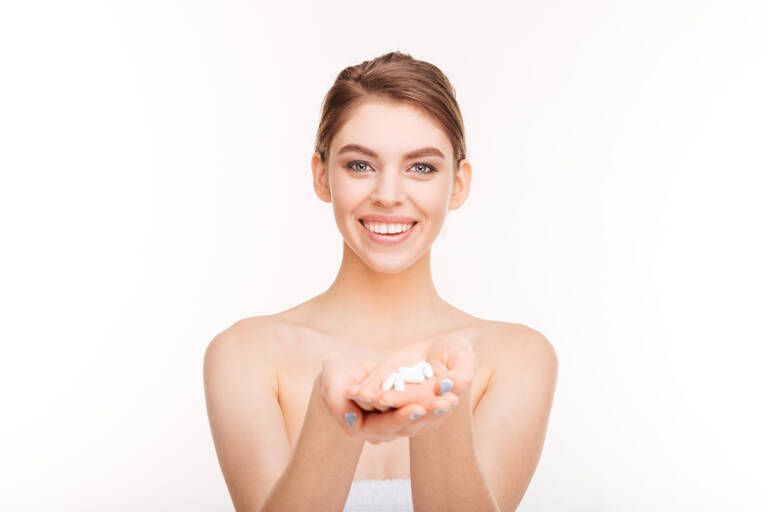Nootropics are smart drugs or compounds that can support and enhance brain function. They are substances, supplements, and other cognitive enhancers that improve our memory, focus, creativity, or motivation. [1]
In addition, Nootropics have stimulating effects that can balance the symptoms of medical disorders like Alzheimer’s disease, narcolepsy, and attention deficit hyperactivity disorder (ADHD).
This nootropics directory is our ultimate checklist where you can find the most popular, effective, exciting, and newly-discovered nootropics and nootropic stacks. We regularly update it to keep it up-to-date.
Why Creating Such Listing?
Today we can easily find around 85 nootropics on the market that are being daily consumed by millions of people. The market is growing with rocket speed, more brands are developing their nootropic supplements, and more nootropic research is being done than ever before.
The future seems promising, but we have to be careful. With so many nootropics on the market and the lack of know-how, we are still far away from being able to provide a compelling list of “SAFE” and recommended nootropics. While many compounds on the following list have been well-researched and we have a green light for daily use, this is not true for all of the nootropics.
We have decided to combine all nootropics in this nootropic list, so whenever someone is trying to sell you some supplements, you can always come back and check if it is on this list. If yes, you at least know you’re buying nootropics. If not, be careful.
We will keep on adding nootropics on this list, and we will make sure to update it as often as possible.
If you have other medical conditions or are undergoing treatment, we recommend consulting your doctor before taking any supplements to avoid side effects or drug interaction.
So, if you are ready, check out our big list of nootropics.
The Big List On Internet
Here you can find a detailed nootropic supplements list:
5-HTP
5-HTP is an amino acid that regulates serotonin and other brain chemicals for relaxation, sleep, and appetite satisfaction. It easily crosses the blood-brain barrier, where it converts to serotonin. [1]
It is also known to decrease appetite and reduce sleep terrors. The recommended daily dosage is 300-500 mg.
Acetyl L-Carnitine
Acetyl L-Carnitine is a derivative from an amino acid that can boost your cognitive and physical performance. It is naturally produced in your body, but supplementing it shows certain benefits. [2]
It can enhance mitochondria energy, and it protects neurotransmitters. Besides, it may improve your memory and mental alertness. The recommended daily dosage is 500 – 2000 mg per day.
Alpha-Lipoic Acid (ALA)
Alpha-Lipoic Acid is a fat-soluble antioxidant that can cross the blood-brain barrier and help protect the brain against aging. It is a synthetic form of lipoic acid, which can eliminate free radices in our brain. It may improve memory and enhance energy levels. [3] The recommended daily dosage is 300-600 mg.
Alpha-GPC
Alpha-GPC is a choline compound needed for a healthy brain and body functioning. It supports memory and fights against cognitive decline. This choline source is found naturally in our brain. Supplementing shows positive effects on our memory, focus, learning, and overall cognition. [4] The recommended daily dosage is 300-600 mg.
Aniracetam
Aniracetam is 2-5 times stronger than normal racetam, and it is primarily used for creativity, holistic thinking, memory, and reducing anxiety. This synthetic nootropic may improve learning, memory, and cognition. Also, it can reduce stress. [5]
The effective dosage starts at 400 mg. Most experts recommend taking 1000-1500 mg per day.
Apoaequorin
Apoaequorin is a jellyfish protein used for the neuroprotective activity. The first research shows it can provide focus and memory benefits. [6] The recommended daily dosage has not been established yet.
Artichoke extract (Luteolin)
Artichoke is a plant that is known for several benefits, including lower cholesterol, liver health, and antioxidant properties. It is a PDE4 inhibitor. This nootropic is often supplemented for improving memory, cognition, and protecting the brains. [7]
The optimal daily dosage has not been established yet.
Ashwagandha
Ashwagandha is an adaptogen root herb with benefits for mental energy, stress resistance, and mood. It has been used in Ayurveda medicine for centuries. It is one of the most popular adaptogens on the market. [8]
The recommended daily dosage is 300-500 mg taken with a meal.
Astaxanthin
Astaxanthin is a potent antioxidant found in algae that may offer some brain-protective activity. It is less researched compared to lutein and zeaxanthin, but it seems more potent. [9]
The recommended daily dosage is 6-8 mg.
Bacopa Monnieri
Bacopa Monnieri is a herb used in traditional medicine for improving memory, focus, and reducing stress. It is one of the most popular nootropics available on the market. Based on our opinion, it should be added to every nootropic supplement.
Because Bacopa is an adaptogen herb, it can prevent the physical effects of stress. Studies show that this herb is effective in treating ADHD, but it works excellent in healthy adults as well. [10]
The recommended daily dosage is 300 mg. We recommend supplementing it for at least 8-12 weeks.
Caffeine
Caffeine is the most widely used stimulant known for its energy-boosting effects and antioxidant properties. It is a popular nootropic because it can provide mental stimulation. [11]
We recommend supplementing 100 mg of caffeine per day. You can expect even better results if you combine it with 200 mg of L-Theanine.
California poppy
California poppy is a species of flower plants suggested to interact with GABA and HTP receptors. It has been traditionally used as a sedative. [12] We lack studies to determine the optimal daily dosage.
Cat’s Claw (Uncaria Tomentosa)
Cat’s Claw is a South American vine herb that may help with brain aging. It possesses strong antioxidant and anti-inflammatory effects. It may prevent inflammation, help people with Alzheimer’s, and boost acetylcholine. [13]
The recommended daily dosage is 250-350 mg.
Catuaba
Catuaba is a traditional Brazilian bark herb that might have neuroprotective benefits. It may be beneficial for improving memory, agitation, and sexual arousal. [14] However, we lack studies to confirm the benefits.
CBD
CBD is a very popular cannabis-derived compound used to treat anxiety. It can help people with chronic pain, reduce inflammation, and decrease symptoms of schizophrenia. [15]
CBD is not entirely legal yet, but it is somehow in a grey area. The recommended daily dosage depends on your issues.
Celastrus paniculatus
Celastrus paniculatus is a woody shrub seed used in Ayurvedic herbalism that may help overall brain health. It may also promote intestinal health. Studies on rats show that this plant can reduce cholesterol and improve cognition. [16]
People used to take 10-20 seeds per day traditionally.
Citicoline
Citicoline is a naturally produced substance used for enhancing memory, improving mood, and cognitive function. This bioavailable source of choline can easily cross the blood-brain barrier on itself. Once it gets to the body, it cooperates in the synthesis of acetylcholine, the learning neurotransmitter. [17]
Citicoline as Cognizin is one of the most effective nootropics on the market. We highly recommend it. The recommended daily dosage is from 250-1000 mg.
Clitoria Ternatea
Clitoria Ternatea is a traditional Asian herb with potential memory-enhancing benefits. It has been used in Ayurveda for centuries. It works similarly to other adaptogenic herbs, but it lacks human studies and evidence. [18]
Coluracetam
Coluracetam is an underresearched synthetic compound that delivers similar effects as Pramiracetam. This synthetic nootropic lacks human studies. [19]
Convolvulus pluricaulis
Convolvulus pluricaulis is an Indian tonic herb and an Ayurvedic brain-booster. It has been traditionally used for improving cognition. Studies on animals seem positive, but we lack studies on humans. [20] Therefore, we do not know the optimal daily dosage.
Coenzyme Q10 (CoQ10)
Coenzyme Q10 is a pseudovitamin that power brain cell mitochondria and has anti-aging benefits. This molecule has a vital role in producing body energy. It may reduce blood pressure and improve blood flow. Besides, it possesses a lot of antioxidants. [21]
The recommended daily dosage is 90-200 mg.
Creatine
Creatine is probably the most researched compound used by athletes for building muscles. This nootropic can increase power output, increase lean mass, and it may improve cognitive performance. Some studies show a reduction in mental fatigue and improved memory. [22]
The recommended daily dosage is around 5 grams.
Choline
Choline is a vitamin-like compound used for normal mental performance. It is one of the essential nutrients that we can get from food. Choline is the precursor to acetylcholine. The primary reasons people often supplement are that it can enhance brain power, enhance memory, and improve learning. [23]
The recommended daily dosage is 250-500 mg.
DHA (Omega 3)
DHA is an essential fatty acid that is necessary for brain development and optimized cognition. This acid is the main component in brain synapses. Supplementing it may improve cognitive performance, boost mood, decrease anxiety, depression, and even obesity. [24]
The recommended daily dosage is around 1 mg of fish oil (DHA and EPA combined).
DMAE
DMAE is a choline molecule, and it is the active compound of centrophenoxine, a popular nootropic drug. It is used for optimizing brain cell structure, but it might as well help with mood, cognitive decline, and attention. [25]
The recommended daily dosage has not been established yet.
Forskolin
Forskolin is made of a root plant in the mind family that might help with weight-loss. This nootropic (native to south Asia) is often combined with the artichoke extract to boost cAMP levels. It may enhance memory in healthy individuals. [26]
The recommended daily dosage is 150-250 mg.
GABA
GABA is a neurotransmitter and an amino acid that can help people relax. It may also improve sleep. GABA cannot cross the blood-brain barrier, so it is often combined with other nootropics. [27]
The optimal daily dosage is unknown.
Ginkgo Biloba
Ginkgo Biloba is an ancient tree that enhances brain circulation, and it shows positive benefits on improving memory. It is one of the most popular nootropics on the market. It seems very effective for decreasing cognitive decline and enhancing memory in the elderly. [28] However, it doesn’t seem so effective for healthy individuals.
The recommended daily dosage is 120-240 mg.
Ginseng
Ginseng is another traditional Chinese plant used for several benefits, including increasing your energy, decreasing stress, and boosting your immune system. There are many types of Ginseng on the market with Panax Ginseng being the “true Ginseng.” [29]
The recommended daily dosage is 200-400 mg.
Gotu Kola
Gotu Kola is a traditional Chinese herbal best known for the fact that it maintains circulation to the brain, which promotes memory and mood. It has been traditionally used alongside Brahmi for cognition and regeneration. Among other benefits, it may ensure the faster growth of neurons. [30]
The optimal daily dosage has not been established yet.
Guarana
Guarana is a South American berry known as one of the best sources of caffeine and an alternative to coffee. Guarana seed contains more caffeine than a coffee bean. This nootropic is great for energy-boosting. [31]
The recommended daily dosage is 50-75 mg.
Huperzine-A
Huperzine-A is a plant extract with cholinergic properties. It works by slowing down the acetylcholine degradation. It seems especially useful for older adults, but it may enhance cognition in healthy individuals as well. [32]
The recommended daily dosage is 50-200 mcg.
Kanna (Sceletium tortuosum)
Kanna is a South African herb that helps to improve mental performance in seniors, especially in those with brain degeneration. It may also be beneficial for reducing anxiety and improving sleep quality. Compared to a placebo, it showed to enhance cognitive functions in middle-aged adults. [33]
The current known optimal dosage is around 8-25 mg per day.
Kava Kava
Kava is a psychoactive root herb that may help to promote relaxation and improve sleep. It has been traditionally used as an anxiety reducer.
Some studies show that supplementing Kava can decrease reaction time, improve subjective well-being, and enhance cognition. [34] However, we do lack studies to confirm all those benefits. The recommended daily dosage is up to 300 mg.
Kratom
Kratom is a risky traditional Asian herb that is believed to promote feelings of calmness. Drug addicts often supplement it for withdrawal from drugs. It may help depressed people, but it is considered unsafe. [35] Therefore, we do not recommend supplementing it.
L-Glutamine
L-Glutamine is a conditionally essential amino acid that supports glutamate, which is a crucial brain chemical for healthy cognition. It seems effective for people who lack it – mainly vegans and vegetarians. [36] The recommended daily dosage is around 5 grams.
L-Phenylalanine
L-Phenylalanine is another amino acid needed for clear mental function. It is a building blog of protein. It is used for depression, ADHD, weight loss, and several other reasons. [37] The recommended daily dosage has not been established yet.
L-Theanine
L-Theanine is an amino acid found in green tea that promotes relaxation and creativity. It is one of the most popular amino acids and nootropics on the market. People often combine it with caffeine to enhance caffeine effects. [38]
Studies show that this amino acid may positively influence sleep quality. The recommended daily dosage is 100-200 mg.
L-Tryptophan
L-Tryptophan is an essential amino acid that helps our bodies make proteins. It is also a nootropic used for relaxation and improving sleep quality. This amino acid is especially beneficial for people who suffer from depression. [39]
The recommended daily dosage has not been established yet.
Lecithin
Soy lecithin is a phospholipid that supplies choline in forms of phosphatidylserine, phosphatidylcholine, and phosphatidylinositol. It is beneficial for decreasing cortisol levels, stress, and cholesterol. Choline, in general, plays an important role in memory formation. [40]
The recommended daily dosage is 500-2000 mg.
Lemon Balm
Lemon Balm (Melissa officinalis) is a traditional herb that promotes calmness and induces sleep. Despite the lack of studies, it may be beneficial for improving cognition as well. It also decreases alertness. [41]
The recommended daily dosage is 300 mg.
Lion’s Mane Mushroom
Lion’s Mane mushroom (Yamabushitake) is a mighty medicinal mushroom that induces nerve growth factor. It is a promising cognitive enhancer; it can decrease anxiety, help people with depression, and slow down cognitive decline. [42] This is one of our favorite nootropics.
The recommended daily dosage is 500-1000 mg.
Magnolia
Magnolia officinalis is a bark herb that is used for relaxation. It has been known from traditional Chinese medicine, where is has been used for its neuroprotective functions. It may protect people from cancer, help with inflammation, and work as an anti-depressant. [43]
The recommended daily dosage is from 160 to 500 mg.
MCT oil
MCT oil is a highly saturated type of coconut oil. It supports the use of ketones for brain energy, and it is helpful for mental clarity. Among other benefits, MCT oil may improve processing speed in people. [44]
We recommend supplementing it with coffee.
Mucuna Pruriens
Mucuna Pruriens is a precursor to the formation of dopamine. This nootropic can increase adrenaline, decrease cortisol, help to reduce the symptoms of Parkinson’s disease, and it may improve subjective well-being. [45]
The recommended daily dosage is 5 grams of dried powder.
NADH
NADH (nicotinamide adenine dinucleotide + hydrogen) is an antioxidant coenzyme related to vitamin B3. It plays an important role in generating energy in our bodies. People use it to enhance mental clarity, focus, concentration, and treating dementia. [46]
The recommended daily dosage is 5-10 grams.
Nefiracetam
Nefiracetam is another synthetic racetam that may help with age-related memory and cognitive issues. It is structurally similar to aniracetam. This nootropic is neuroprotective, and it may enhance our memory. [47]
The recommended daily dosage is 150-450 mg.
Nicotine
Nicotine is nootropic with relatively powerful brain-boosting benefits. It is naturally found in tobacco, which is an important compound of cigarettes. Nicotine can activate acetylcholine receptors, it works as a fat burner, and it may increase cognition. [48]
Noopept
Noopept is a very popular nootropic that shows a positive impact on brain function. It is structurally similar to piracetam, so it provides similar effects. It is a great nootropic for its stimulatory properties. [49]
The recommended daily dosage is 10-30 mg.
Oatstraw
Oatstraw is a plant which increases alpha brain waves associated with a state of relaxed alertness. It is also believed that it can reduce inflammation and improve mood. [50]
The recommended daily dosage is 800-1600 mg.
Oxiracetam
Oxiracetam is a very potent racetam that is used for boosting attention, logical thinking, and memory. Students mainly use it for enhancing learning, but it lacks human studies to confirm the benefits. Studies show, however, that Oxiracetam is effective for slowing down cognitive decline and dementia. [51]
The recommended daily dosage is between 1200 and 2400 mg.
Passionflower
Passionflower is a traditional herb with calming properties. Many people take it to fight sleep problems such as insomnia. Others supplement it to reduce anxiety, pain, and nervousness. [52] Until we get more studies, we won’t understand how effective passionflower really is.
The recommended daily dosage is 400 mg.
Phenibut
Phenibut is a very controversial nootropic that might help with mood issues. Structurally it is similar to GABA but is primarily used as a recreational drug. People use it to treat fear, anxiety, stress, fatigue, etc. [53]
We do not recommend supplementing Phenibut.
Phenylpiracetam
Phenylpiracetam is a very powerful, highly energizing racetam with positive benefits on mental performance and physical strength. It is derived from Piracetam, and it seems more effective than its older brother. [54]
The total recommended daily dosage is 200-600 mg.
Phosphatidylcholine
Phosphatidylcholine is a phospholipid nootropic that is key for brain regeneration. We currently lack studies to understand how effective this nootropic is. [55]
Phosphatidylserine (PS)
Phosphatidylserine is a very popular nootropic for memory boosting. By definition, it is an amino acid that is naturally found in our brains. Studies show that supplementing PS may enhance memory in the elderly, slow down cognitive decline, and decrease stress. [56]
The recommended daily dosage is 100 mg per day. You can take it up to three times.
Picamilon
Picamilon is a compound that helps people with anxiety and attention. It is a synthetic drug, a combination of niacin and GABA. Picamilon is sold as a prescription drug in Russia. [57]
Since it is illegal in the US, we do not recommend supplementing it.
Pine Bark Extract
Pine Bark Extract (Pycnogenol) is an antioxidant that might help with attention and brain health. It is also studied in other areas, such as how it can help people with erectile dysfunction and diabetes. Studies confirm that Pine Bark Extract can improve blood flow and increase cognition. [58]
The recommended daily dosage is 40-200 mg.
Piracetam
Piracetam is the original racetam, labeled as the first nootropic ever developed. It optimizes brain chemicals for stimulating mood balancing effects. It can slow down cognitive decline and improve memory. [59]
The standard daily dosage is 1200-4800 mg.
Pramiracetam
Pramiracetam is a racetam that might have a positive impact on focus, learning ability, and enhancing memory. Preliminary studies show that this nootropic might help with long-term memory formation. [60]
The standard daily dosage is up 1200 mg.
Pterostilbene
Pterostilbene s a powerful antioxidant found in berries. It is a derivative of resveratrol and much better absorbed. Since we lack human studies, we currently cannot recommend it. The optimal daily dosage has not been established yet. [61]
Pyrroloquinoline quinone
Pyrroloquinoline quinone (PQQ) is another powerful antioxidant that was once thought to be a vitamin. It has a neuroprotective function in the elderly, and it may boost mitochondria. PQQ shows a lot of potentials, but we lack human studies. [62]
The optimal daily dosage is unknown.
Resveratrol
Resveratrol is a red wine antioxidant that supports healthy brain aging. It may increase lifespan, modulate pressure in the blood, and it has many other antioxidant benefits. [63] Resveratrol seems one of the nootropics with great potential for anti-aging.
The optimal daily dosage has not been established yet.
Rhodiola Rosea
Rhodiola Rosea is an adaptogen herb that optimizes mental energy and physical endurance. It can reduce fatigue and depression; it can also enhance cognition. This is one of our favorite nootropics on the market. [64]
The recommended daily dosage is 50-680 mg.
Rosemary
Rosemary (Rosmarinic Acid) is a very popular herb that is less often used as a nootropic. It is an effective antioxidant. [65]
SAMe
SAMe (S-Adenosylmethionine) is most often used to support mood balance. This molecule seems to decrease symptoms of arthritis, depression, and pain. It may enhance memory. [66]
The recommended daily dosage is between 600 and 1200 mg.
Schisandra Berry
Schisandra Berry is an Asian berry that might help to protect your brain. It has been traditionally used for reducing anxiety and cortisol levels. It may possess other health benefits. [67]
The recommended daily dosage has not been established yet.
St. John’s Wort
St. John’s Wort (Hypericum Perforatum) is a traditional herb that might help with depression. It is a very effective nootropic, which adversely interactive with many pharmaceutical drugs. [68]
Before supplementing it, we highly recommend consulting your doctor.
Sulbutiamine
Sulbutiamine is a synthetic vitamin B1 that may help with brain health. It seems especially useful for alleviating fatigue. [69] The optimal daily dosage has not been established yet.
Taurine
Taurine is a very popular amino acid that regulates cell to cell communication. It may be beneficial for diabetics, it increases blood flow, and it has been studied for several other potential benefits. [70]
The recommended daily dosage has not been established yet.
Theobromine
Theobromine is a popular caffeine-like compound that might have stimulating effects and boost blood flow. It is found cocoa products, including chocolate. [71]
The recommended daily dosage has not been established yet.
Tongkat Ali
Tongkat Ali (Eurycoma) is known as a male-enhancement herb. It is a pro-fertility agent, a pro-erectile agent, and an anti-estrogen. Studies show that it may improve subjective well-being, decrease stress, and even weight. [72]
The recommended daily dosage is 200-300 mg.
Turmeric
Turmeric is a potent root herb that contains curcumin, a powerful antioxidant. It is one of the most essential spices you can find in curry. Turmeric is also called an anti-Alzheimer’s spice due to its positive benefits of reducing this effects of this disease. [73]
The recommended daily dosage has not been established yet.
Tyrosine
L-Tyrosine is an amino acid with a powerful impact on our brain function. It is used to produce two essential neurotransmitters – dopamine and noradrenaline. It is especially useful for people in stressful situations. [74]
The recommended daily dosage is 500-2000 mg.
Uridine
Uridine is a nootropic that has the potential to protect the brain from degeneration. We currently lack studies to confirm any uridine benefits. [75]
Valerian
Valerian (Valeriana officinalis) is an ancient root herb that may work by sustaining GABA. It is often used in herbal teas for its anti-anxiety properties. It may enhance sleep quality, but it is an even better relaxing agent. [76]
The recommended daily dosage is up to 450 mg.
Vinpocetine
Vinpocetine is a compound found in the Periwinkle plant and one of the best brain circulation boosters. It may enhance memory, decrease pulse rating, and reaction time, and it may slow down cognitive decline. [77]
The recommended daily dosage is 15-60 mg.
Vitamin B1 (Thiamine)
Vitamin B1 is an essential vitamin that is linked to normal cognitive performance. It can decrease symptoms of PMS, blood pressure, and plays other vital roles in our body. [78]
The recommended daily dosage is 100-300 mg.
Vitamin B3 (Niacin)
Vitamin B3 is another essential vitamin that may help with healthy brain function. It may provide benefits for cardiovascular health, help with acne, and has many other important roles in our body. [79]
The recommended daily dosage is between 50 and 1000 mg.
Vitamin B5 (Pantothenic Acid)
Vitamin B5 is an important vitamin that might help with attention. It is crucial for the formation of Coenzyme A. It plays a vital role in energy production. [80] We don’t know how effective supplementing Vitamin B5 really is.
Vitamin B6
Vitamin B6 is another B-vitamin important for producing enzymes in our body. It also contributes to nerve sheathing, and it decreases symptoms of PMS. [81]
Supplementing Vitamin B6 doesn’t show any special benefits for healthy individuals.
Vitamin B8 (Inositol)
Vitamin B8 optimizes the neurotransmitters serotonin. That is why many people who suffer from stress and depression supplement it. Besides, Vitamin B8 plays other important roles in our body. [82]
The optimal daily dosage depends on your health issues.
Vitamin B9 (Folic Acid)
Vitamin B9 plays a role in supporting cerebrovascular health. It may decrease depression and the symptoms of schizophrenia. It has other roles for overall health. [83]
If you decided on supplementing folate, the recommended daily dosage is up to 400 mcg.
Vitamin B12 (Cobalamin)
Vitamin B12 plays many important roles in our body, the most important one being the transformation of carbohydrates to glucose. If you lack Vitamin B12, you might experience brain fog, issues with memory, depression, and even mood swings. [84]
The recommended daily dosage is up to 1000 mcg per day, but most supplements contain much lower dosages.
Verdict
As you can see in our list of best nootropics, there are many nootropics available on the market. But how to combine them for the optimal effects? We suggest buying a high-quality and effective nootropic supplement.
Click on the button below to check our list of top-rated nootropics and nootropic stacks.
